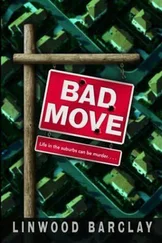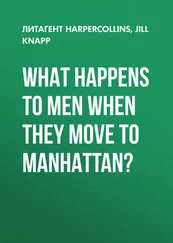Not long after, Lacerda was slated to address a political meeting. That night it was the turn of Major Rubens Vaz to see that he got home safely. Lacerda lived at that time in Copacabana, the famous beach resort which the first building boom of the thirties had made part of the city of Rio, in a new apartment house on a treelined street overshadowed by the mountain and the tall buildings. Broadleaved trees overgrowing the streetlamps made the sidewalks dark. The litter of construction was everywhere. As Lacerda and Major Vaz climbed out of their car at Lacerda’s front door somebody started shooting at them from across the street. Lacerda returned the fire. Major Vaz, who was unarmed, was killed. Lacerda was shot in the foot. The assailants escaped.
The Crime on Toneleros Street
When Vargas’ police appeared on the scene they tried to make it appear that it was Lacerda, while firing at an imaginary gunman, who had killed Major Vaz.
Major Vaz had a wife and children. He was a popular young officer. His murder infuriated his comrades in the Air Force. Brushing the police aside, a group of senior officers decided to hold their own inquest. It became clear that the murder was instigated by a Negro named Fortunato Gregório who was known as the “black angel” of Vargas’ personal bodyguard. He eventually confessed to having hired the gunman to do the job and was sent to jail for twenty years, there being no death penalty in Brazil.
The press, the houses of Congress, the military clubs rang with denunciations of the crime on Toneleros Street. Demands for President Vargas’ resignation were heard on every hand. The old man was terribly shaken by Gregório’s confession and by definite proof which was placed on his desk that his own children were trading on his name in all sorts of financial deals. At a meeting of his Cabinet the night of August 23 he spoke despairingly of “the sea of mud” under the presidential palace and consented, after much urging, if not to resign, at least to retire from the government.
After the cabinet meeting President Vargas went to his room in the early hours of August 24 and there shot himself through the heart.
“The odd thing about it,” said my friend when he broke off the story, “is that Vargas’ suicide made him a national hero … the Brazilians are a sentimental people.”
“But how can they blame Lacerda for it?” cried his wife impatiently. “It was Lacerda who was the hero.”
Sunday Lunch in Petrópolis
We had driven out beyond the cobbled treeshaded avenues of Petrópolis into a broad rimrocked valley. Brilliantly green vegetation sprouting with all kinds of flowers overflowed the stone garden walls on either side of the road.
When we reached Lacerda’s country place my friend parked his little car in an embrasure in one of the walls and led the way up some stone steps through a tunnel of bougainvillaea into a flagged patio. Everything was so full of flowering plants you couldn’t tell which was the garden and which was the house.
Lacerda set down a flowerpot as he came out to greet us. He was tanned, very much the sunburned Apollo in shell-rimmed spectacles. He was completely preoccupied with his gardening operations. As we walked about his orchard and vegetable garden he introduced each plant and tree as if it were a person.
He had reason to be proud of his plantings. The valleys in the mountains around Petrópolis are one of those marvelous regions where plants from the tropical and temperate zones flourish with equal profusion. There are orchids along with nasturtiums. Cabbages grow next to pineapples. Beside mangoes grow guavas, oranges, and apricots, and even occasionally an apple tree. Lacerda was particularly proud of his apple tree.
Somebody said the place was like the Garden of Eden. “Naturally. We are in my native state of Rio de Janeiro,” Lacerda answered dreamily in English. “It is truly a paradise”—he laughed—“where only man is vile … Maybe not so vile. Let’s give him a chance.”
We met his wife, who looked much too young to be the mother of two wellgrown boys and a girl. Lacerda himself looked younger than I had remembered. There was an air of youthfulness and closeknit intimacy about the whole family. You felt they were all in it together.
Dona Lota’s house, built by Sérgio Bernardes of glass and steel beside a cascading brook, was something to see, though one skeptic did mutter into another skeptic’s ear that it did look a little like the model of an oldfashioned railroad station. There was a pleasant gathering at lunch: the architect Bernardes, an eminent historian, a number of people interested primarily in painting and sculpture. The talk, half in English, half in Portuguese, was about Picasso and Léger and books and St. John Perse and the new museum for modern art which was going up in Rio. Lacerda was at home in all this. He showed a flair for painting. He expressed the reasoned likes and dislikes of a man who did his own reading and used his own eyes and his own ears. His remarks had a humorous tone that kept us all laughing. Not a word about contemporary politics.
On the way back down the mountain my friend’s wife said she was a little let down. It was as if we had been lunching in Paris, instead of Brazil. She had expected Lacerda to be more forceful. “It’s a Sunday,” said her husband soothingly, “a man can’t be forceful every day of the week.”
The Cruise of the Tamandaré
A few nights later at the apartment on Toneleros Street, where he still lived, Lacerda himself described the scramble of events so unfortunate for his Democratic Union that followed Vargas’ death. He didn’t spare himself. He gave a comical cast to the recital of his political misadventures.
After Vargas’ death Vice-President Café Filho, a wellmeaning gentleman from one of the small northeastern states, took over the presidency in due form. He had been on good terms with the old man and took the attitude that as interim President his only business was to see that the elections were peacefully conducted.
The country was preoccupied with the funeral eulogies of the great Getúlio. The industrial workers felt that they had lost their best friend. Even among the growing middle class, who tended to sympathize with the Democratic Union, it was admitted that Vargas had broadened the base of participation in political life. Every Brazilian now felt himself a citizen. The crimes and corruptions of the dictatorship were forgotten in the general mourning.
Lacerda, in speeches and editorials, was driving for a complete cleanup of the remnants of the Vargas regime. In his Tribune of the Press he called for an end of machine politics. He was piling up votes for his candidacy for the Chamber of Deputies.
Party labels have little meaning in Brazil. With the relaxation of Vargas’ heavy centralizing hand the national parties fell under the command of local leaders in the different states. The state governors became powerful figures. Groupings of local politicians resulted in splinterings and coalitions. Dozens of minor parties came into being. In São Paulo, for example, a pokerfaced politico named Adhemar de Barros used his patronage as governor to build up a Social Progressive Party of his own. In Minas Gerais the governor, Dr. Juscelino Kubitschek, was being groomed for the presidency by his local Social Democratic machine. From their stronghold in Rio Grande do Sul, under the banner of a testament supposedly written out by Vargas before his death, João Goulart and his brotherinlaw Leonel Brizola kept Vargas’ Labor Party intact, though its greatest strength still lay in the labor unions of the city of Rio.
In the 1955 election, through a deal with the Labor Party which resulted in João Goulart’s being chosen Vice-President, Kubitschek carried the presidency. The Communists claimed that it was their backing that clinched his election.
Читать дальше












